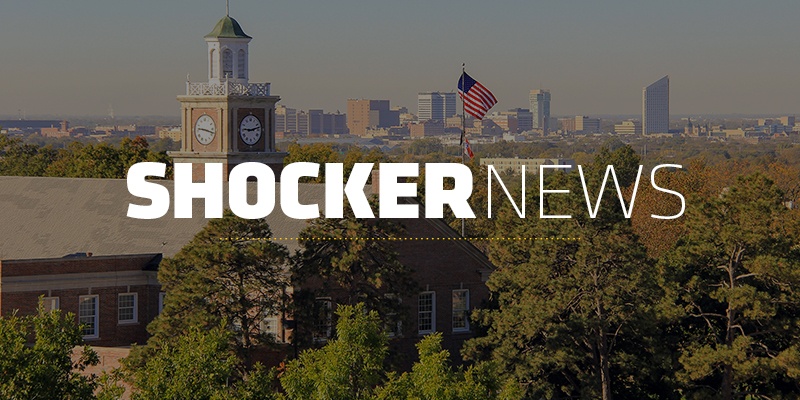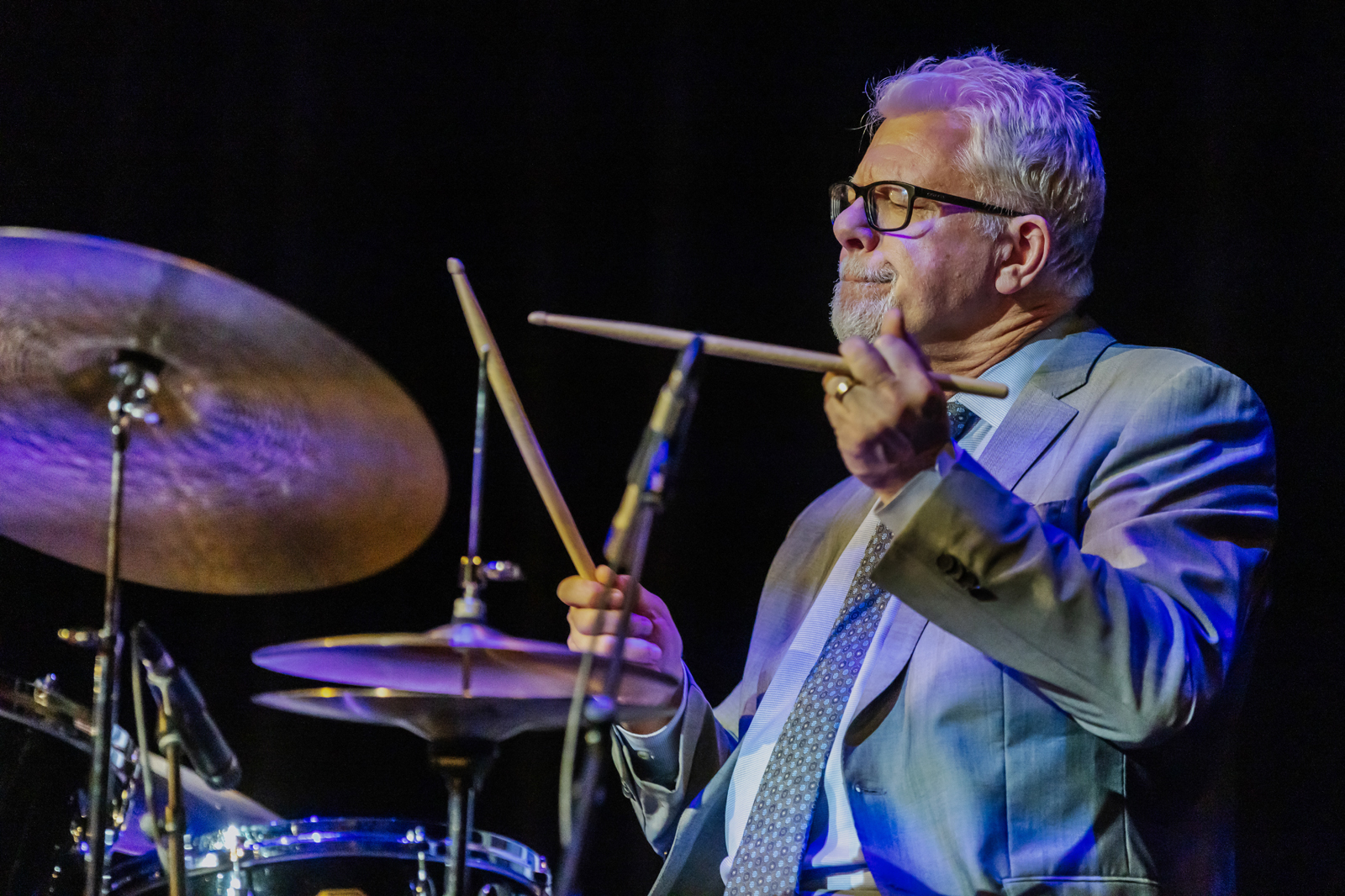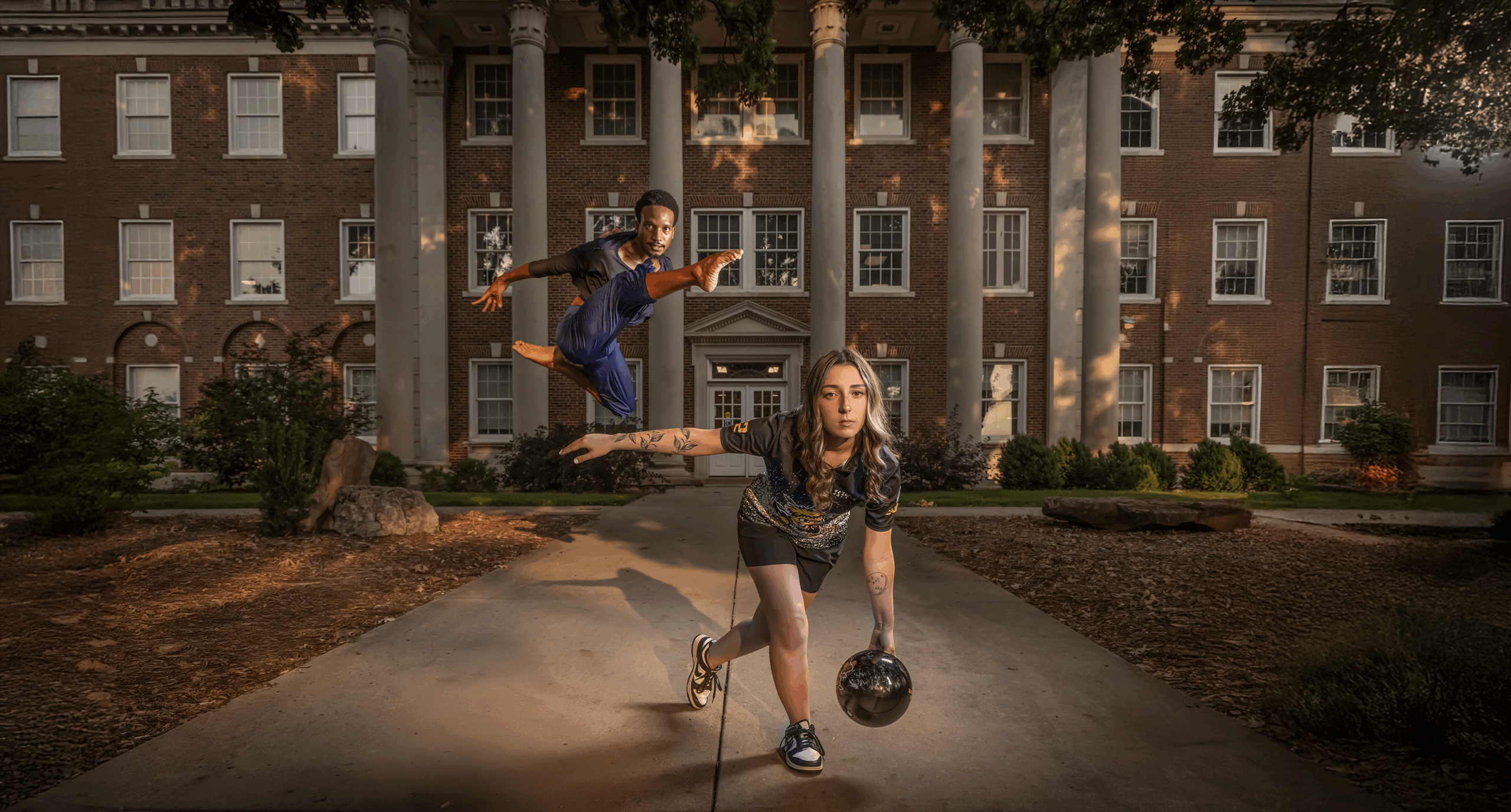Shocker News

Founded for the future
Wichita State’s pledge to students yesterday, today and tomorrow

This September, Shocker Nation came together to celebrate our history and invest in our future during Wichita State’s first ever Founders’ Day of Giving.
The event harked back to our university’s earliest days when such leaders as Fairmount College founder Joseph Homer Parker and first president Nathan J. Morrison took action to secure the college’s future.
Today, with 120 campus ambassadors inspiring donations to more than 100 Shocker programs, Founders’ Day of Giving contributions are funding everything from student support resources and scholarships, to travel to academic conferences and athletic competitions.
As Morrison wrote on Aug. 1, 1895 when he accepted our university’s first presidency: “I am with you, heart and soul, in (this) great emprise.”
Our call to action for student support

Clinton Hall has begun its $18.5 million transformation into the Shocker Success Center – a home for 17 student services currently spread across Wichita State’s main campus.
The building’s revitalization was made possible when the Barton School of Business moved to its new home in Woolsey Hall, and with its location in the heart of campus, it’s the perfect place for a hub of student services. When complete, the now perennially dim and imposing brick building will be filled with natural light and airy interior spaces. The warm and welcoming facility will be highly functional, reducing confusion for students and increasing convenience.

Ensuring students have access to resources is a crucial part of setting them up for future success. These services help students facing financial barriers, academic struggles, mental and emotional health issues, cultural differences and many other challenges that disproportionately affect underserved students. Centralizing these resources in one location will not only help students excel, it is expected to increase retention and has the potential to improve matriculation.
Fundraising for the project is ongoing and remains one of WSU President Rick Muma’s top priorities. To learn more about giving opportunities, visit foundation.wichita.edu/shockersuccesscenter.
EVP and provost champions student success

Shirley Lefever has the most difficult job at Wichita State, WSU President Rick Muma says. That’s because, as the university’s executive vice president and provost, Dr. Lefever must stay on top of the widest swath of academic subjects, priorities and trends to excel in the role she took up April 14, 2022. Armed with lessons learned over the course of her wide-ranging career in education, Lefever cuts right to the heart of her job. It’s simple, she says: “It’s all about the students.”
Born in Burns, Kan., where her family ran a small dairy farm, Lefever is a first-generation college graduate, earning a bachelor’s degree in elementary education from Kansas State University. Her interest in cultivating students’ abilities took root during her time teaching in multi-grade classrooms and led to her pursuing graduate degrees in curriculum and instruction. She holds both master’s and doctoral degrees, also from Kansas State.
Lefever made the jump to higher education at the University of Arkansas, where she helped develop the Master of Arts in Teaching degree program and, in 1996, was presented the Outstanding Teaching Award for the College of Education and Health Professions. After 14 years at Arkansas, she transplanted her deep commitment to developing clinical models for effective teacher preparation to Wichita State in 2005, when she started as department chair for curriculum and instruction in the College of Education (CoE). Since then, her reach of responsibilities has grown steadily. She became associate dean for CoE in 2008, senior associate dean in 2012, interim dean in 2013 and acting dean in 2014.
As dean, a position she counts as among the “most rewarding” of her career, she oversaw the CoE’s transition to the College of Applied Studies in 2018.
A noted scholar whose publications include “Reading, Writing, and Relevancy: Incorporating the 3Rs into STEM” (2015) and “Making an Impact: A description of a collaborative partnership between a university teacher preparation program and an urban school district” (2016), Lefever was appointed interim executive vice president and provost in 2020 before being selected as full EVP and provost last spring. Her enthusiasm for the job is tangible.
“I’m super excited about student success and what we’re doing here at WSU to ensure that,” she says, as she wholeheartedly shares a stream of examples that illustrate her point. She covers everything from big-picture university priorities, topped by “access and affordability” and including gaining recognition as a Hispanic Serving University; to academic field-specific, faculty-led research and service projects; to R&D collaborations with private, corporate and government partners; to individual program offerings for life-long and applied learning experiences geared toward — and she’s back to the focus of it all when she says — “our students.”
Canada’s chief science adviser to be recognized with honorary doctorate

Two years ago, Wichita State alumna Mona Nemer ’77 was reappointed by Canada’s Prime Minister Justin Trudeau for her second term as the country’s chief science adviser. A noted medical researcher in the field of molecular cardiology, Nemer was first appointed to the position in fall 2017.
Charged with advising the prime minister and minister of science, she and her staff work from their base on Parliament Hill in Ottawa to promote science and its benefits for Canadians, as well as to keep government science accessible and public. With the arrival of COVID-19 and the global fight against the contagion, Nemer’s high-profile work has grown ever more challenging, complex and crucial.
In recognition of her international standing and her history as a Wichita State student, Nemer returns to campus for the fall 2022 commencement ceremony slated for Dec. 18, when she will be awarded a Doctor of Philosophy. “I am humbled to be the recipient of such an honor from my alma mater,” she says. “I have fond memories of the university and the city, and can’t wait to visit again!” President Rick Muma selected her for the honor, which is conferred only upon persons of notable achievement or service to humanity.
Before becoming Canada’s chief science adviser, Nemer was professor and vice president of research at the University of Ottawa, where she directed the Molecular Genetics and Cardiac Regeneration Lab. Before that, she was a pharmacology professor at the Université de Montréal and directed the Cardiac Genetics Unit at the Montreal Clinical Research Institute. And jumping a few befores before that, Nemer, who was born in Beirut, was a young international student intent on studying chemistry at WSU.
“In Wichita, I lived with my aunt and her family,” she recalls. “I took chemistry courses, but I also took — we had language requirements in chemistry. I learned German. I remember the German lessons, one hour every day for an entire year. I remember the French club I hooked up with. I’m very grateful for the education I received. It has helped me throughout my life and my career.”
A legacy of music: Shocker supporters leave $1 million estate gift to WSU Music Associates

Betty and Art Wood shared a passion for music, and their legacy of supporting the arts continues through their estate gift of $1 million to the Music Associates Endowed Fund.
Though neither graduated from WSU, the couple had a lifelong connection to the university. For more than 30 years, they financially supported a number of fine arts programs. Art, for instance, was generous with his time, serving as a member of the Music Associates Board of Directors, including a term as chair.
“Art and Betty were incredibly committed to supporting students in the arts at Wichita State,” says Ann Marie Siegwarth, senior director of development for the College of Fine Arts.
As active members of Wichita’s music community, Art and Betty began contributing to the fund in 1994. Since its inception, the Music Associates Fund has been used for student scholarships, student projects, guest artists and activities.
“Private support for the Music Associates Fund has opened doors for meaningful experiences for our students,” says Timothy Shade, director of the School of Music, director of bands and coordinator of the graduate wind conducting program. “This is one of the largest donations the College of Fine Arts has ever received. I’m overwhelmed thinking about the ways this will benefit our students.”



